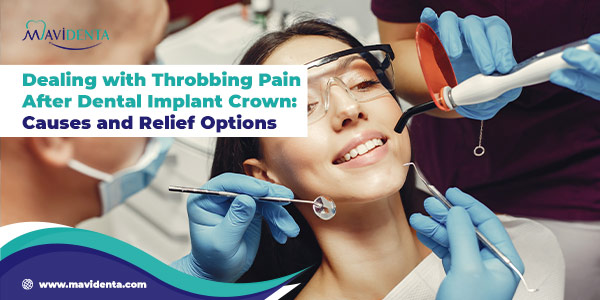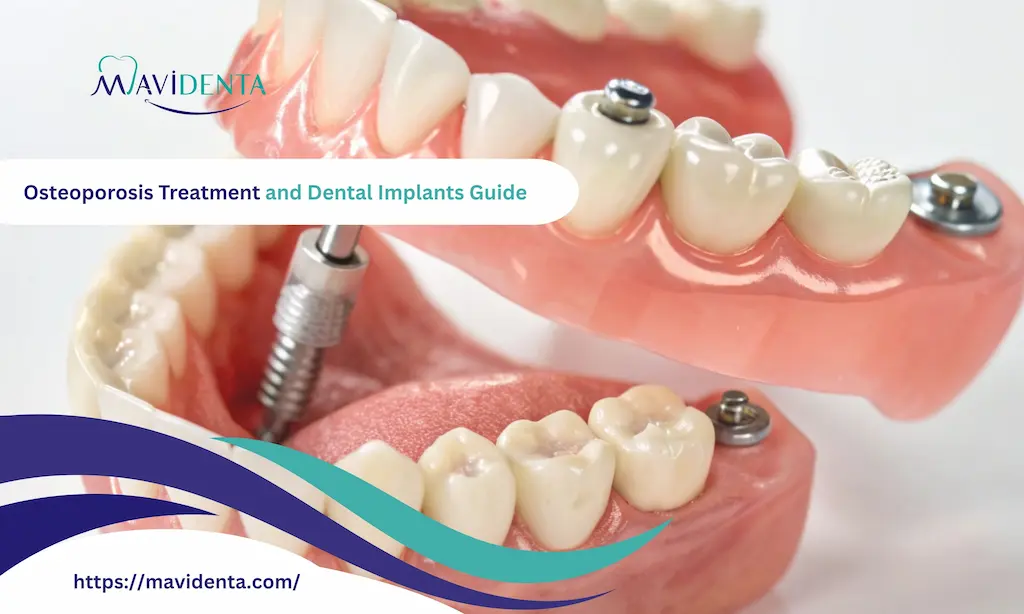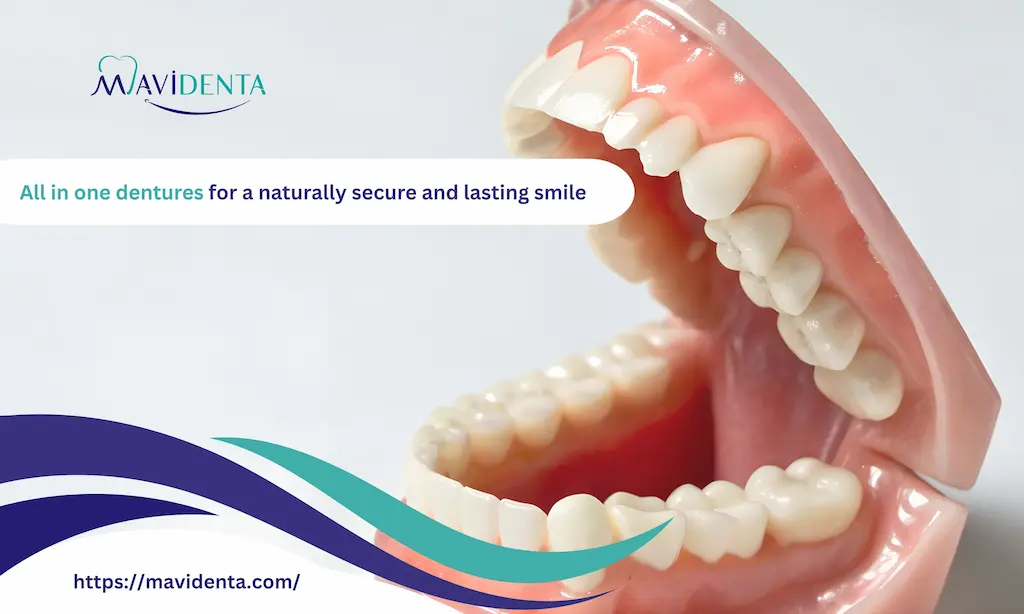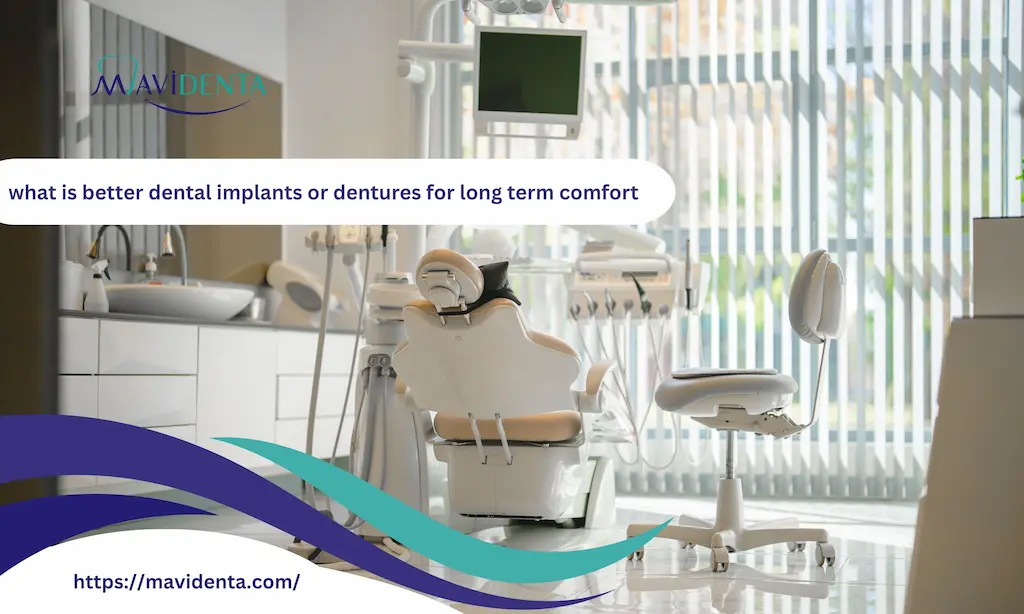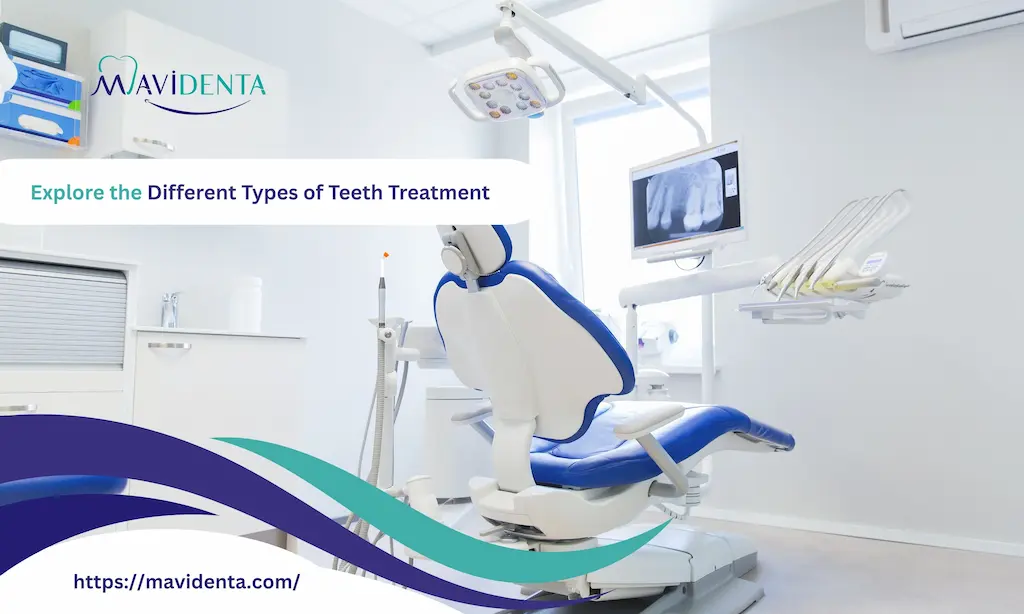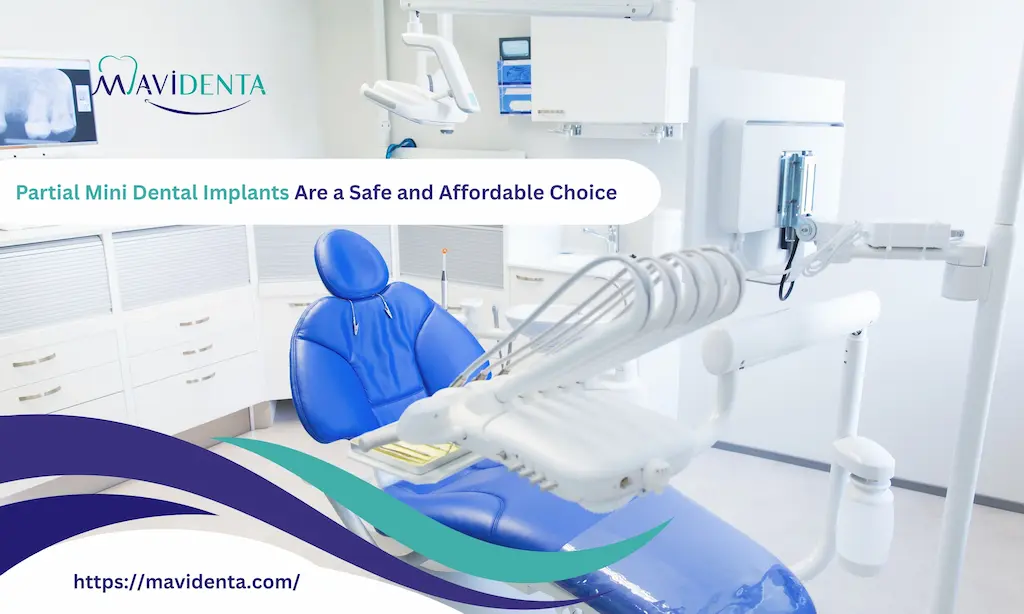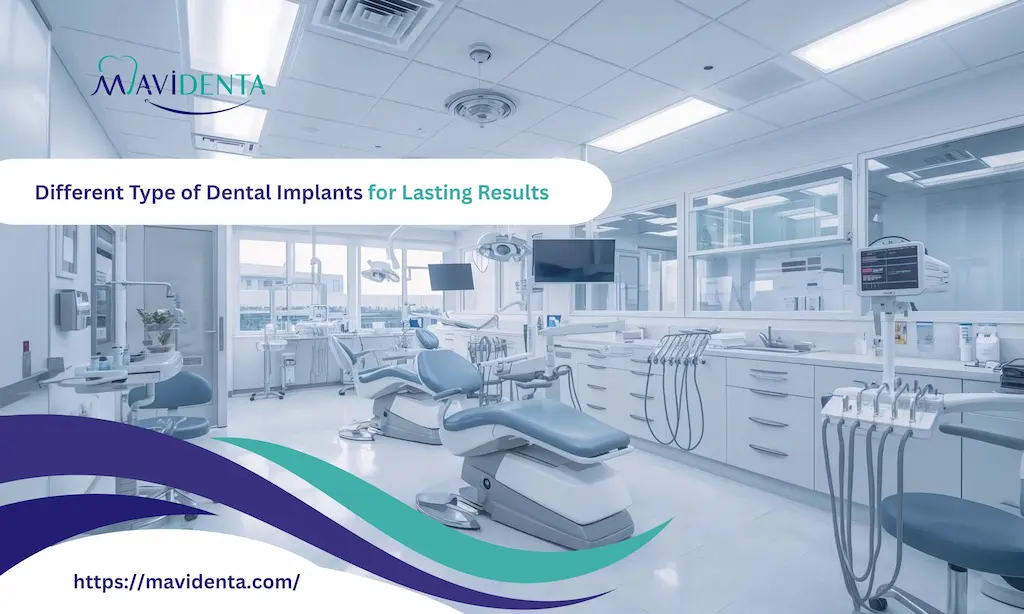Experiencing throbbing pain after dental implant crown? Wondering what could be the cause? Thinking of the potential reasons behind this discomfort unravels essential insights for prompt relief and effective resolution.
Understanding Dental Implant Crowns:-
Dental implant crowns are like natural teeth, so nowadays, they are a popular option for most patients. They consider them a durable solution for the missing teeth. It is worth noting that they are made of porcelain or ceramic; they are designed to match the existing teeth’ color, shape, and size, effortlessly blending with the natural smile.
It is considered a straightforward procedure, but some patients feel throbbing pain after a dental implant crown, so they should return to their dentist for help solving this problem.
This problem can often be attributed to several factors:
1- Inflammation in the surrounding tissues can occur during the healing process and disappear over time.
2- Improper crown fit. When the crown is even slightly misaligned or doesn’t place perfectly on the implant, it can lead to extra pressure on the surrounding tissues, causing pain.
In addition, you can consider nerve sensitivity because of the implant’s proximity to nerves in the jaw, which can lead to temporary sensitivity or discomfort, which can appear as a throbbing sensation.
If the patient feels any pain or issue, he should consult his dentist immediately.
Also check: All-on-4 Vs All-on-6 Dental Implants
Throbbing pain after dental implant crown :-
It’s essential to address this discomfort promptly to understand its underlying causes and seek appropriate treatment. Throbbing pain can have various origins, and pinpointing the exact source is crucial for effective resolution.
It’s crucial not to dismiss persistent or intensifying pain. Seek prompt attention from a dental professional who can assess the situation, make necessary adjustments, and ensure the implant crown is optimally positioned for a comfortable, functional smile. Remember, your dentist is your best ally in addressing and alleviating any post-procedure discomfort.
We can confidently recommend Mavidenta clinic. The quality of its work is exceptional, and you find friendly dentists take the time to listen to your concerns. You are extremely satisfied with the experience. Contact our clinic now.. our clinic is the High quality Dental clinic in Istanbul.
Explore the Best Dental Clinic In Turkey
Normal vs. Abnormal Pain:-
If you feel a little discomfort, it’s normal to experience throbbing pain after dental implant crown. It is considered an initial part of the healing process and a natural response from your body and can be managed with prescribed pain relief measures and disappears within a few days.
But if there is a severe throbbing pain that intensifies over time, it can be a sign of complications resulting from an infection, improper fitting, or nerve irritation, and these issues require the necessity of immediate professional attention.
Being able to differentiate between these types of pain empowers individuals to make informed decisions about their oral health. While normal discomfort is part of the recovery process, the abnormal pain, particularly intense or enduring pain, should prompt a visit to the dentist for a thorough evaluation and appropriate intervention.
Read more about How Long Does Numbness Last After Dental Implant.
Possible Causes of Throbbing Pain:-

Experiencing throbbing pain after dental implant crown is a concern that requires careful evaluation. While some discomfort is normal during the initial healing phase, persistent or severe throbbing can be a signal of potential issues. Here are some possible causes of a throbbing pain:
Infection:
A post-operative infection around the implant location can lead to a throbbing pain. It’s essential to address this promptly, as untreated infections can lead to more significant complications.
Improper Fit:
If the dental crown doesn’t fit correctly, it can create pressure on the surrounding tissues and cause discomfort. This may require adjustments or replacement of the crown.
Nerve Irritation:
During the placement of the implant crown, nerves in the area may be disturbed, leading to throbbing or sharp pain. This should be assessed by a dentist to ensure proper nerve function.
Bone Resorption:
In some cases, the jawbone may undergo resorption after the implant procedure, leading to changes in pressure and potential discomfort.
Bruxism:
Teeth grinding or clenching (bruxism) represents an excessive force on the implant and surrounding tissues, resulting in pain.
Sinus Issues:
For upper jaw implants, proximity to the sinuses can sometimes lead to sinus-related discomfort.
Gum Recession:
If the gum tissue around the implant begins to recede, it can expose sensitive areas and lead to throbbing pain.
It’s crucial to consult a dentist promptly if throbbing pain persists after a dental implant crown procedure. They can conduct a thorough examination to determine the underlying cause and recommend appropriate treatment.
Immediate Post-Procedure Discomfort:-
If you feel some discomfort such as throbbing pain after dental implant crown, it is normal.. do not worry. This is a natural response to the surgical process which typically causes this sensation.
During the procedure, minor trauma and manipulation of the tissues occur, leading to temporary inflammation and sensitivity. This, in turn, appears as a throbbing sensation. It’s important to note that this discomfort can be controlled and tends to disappear within a few days.
To alleviate this immediate post-procedure discomfort, dentists recommend over-the-counter pain relief options or prescribe specific medications. Additionally, applying ice packs intermittently in the initial hours can help reduce inflammation.
However, it’s crucial to differentiate between normal post-operative discomfort and abnormal pain.
Infection and Inflammation:
Infection and inflammation can occur after a dental implant crown and represent a source of concern. These issues can arise due to a range of causes, including surgical trauma, poor oral hygiene, or health conditions. When left untreated, they can lead to severe discomfort and potential complications.
Infection: bacteria is a common cause of throbbing pain and can occur if proper post-operative care and hygiene practices aren’t followed.
Inflammation: Excessive inflammation can lead to throbbing pain. This can occur due to the immune system’s overreaction or any other issue that hinders the body’s normal healing process.
To achieve a successful recovery after a dental implant crown procedure, you should consult your dentist if one of these issues appears. This may involve a course of antibiotics, enhanced oral hygiene practices, and, in severe cases, implant crown removal and replacement. Consulting a dentist at the first sign of abnormal pain is essential to avoid further complications.
Bruxism and Bite Issues:
Throbbing pain after dental implant crown can sometimes be attributed to bruxism (teeth grinding) or bite misalignment. These issues can lead to discomfort in the implant and surrounding tissues.
Bruxism: Individuals who grind or clench their teeth, especially during sleep, may experience increased pressure on the implant. This can cause the implant crown to exert pressure on the surrounding tissues, resulting in throbbing pain. The continual stress on the implant can also lead to long-term complications if not addressed.
Bite Misalignment: If the dental implant crown does not align correctly with the other teeth, it can create uneven pressure distribution. This can lead to discomfort, especially when chewing or during jaw movement. Adjustments to the crown’s position may be necessary to alleviate this issue.
Managing bruxism often involves using a nightguard to protect the teeth and implants from excessive pressure. In cases of bite misalignment, the crown may need to be adjusted or replaced to ensure proper alignment.
Gum Recession and Sensitivity:
Throbbing pain after dental implant crown may sometimes be linked to gum recession and sensitivity. These issues can result in exposing the tooth’s root or implant area, leading to discomfort.
Gum Recession: When the gum tissue around the implant recedes, it exposes more of the tooth’s surface, including the implant crown. Therefore, this can increase sensitivity and, in some cases, throbbing pain.
It is worth noting that the roots of the teeth or implants are not protected well as the enamel, making them more susceptible to pain.
Sensitivity: Sensitivity can occur after a dental implant crown procedure, especially if the crown’s fit is not perfect or if the gum tissue suffers from inflammation. This can cause discomfort, particularly when consuming hot or cold substances.
As a result, dentists recommend techniques to alleviate sensitivity or, in severe cases, suggest procedures to address gum recession.
Also check: Dental Centre Turkey Payment Plan
Remedies for Throbbing Pain:-
Throbbing pain after dental implant crown can be distressing. However, several remedies can help alleviate discomfort and promote healing.
Over-the-Counter Pain Relief:
Over-the-counter pain relievers like ibuprofen can provide temporary relief from throbbing pain. Follow the recommended dosage and consult a healthcare professional if you have any concerns.
Prescription Medications:
For severe pain, a dentist may prescribe stronger pain medications. Follow the prescribed dosage and inform your dentist of any existing medical conditions or allergies.
Cold Compress and Oral Rinses:
Applying a cold compress to the affected area can help reduce inflammation and numb the pain. Additionally, using an oral rinse can soothe the gums and promote healing.
Maintaining Proper Oral Hygiene:
Gentle brushing and flossing around the implant crown can prevent further irritation. Use a soft-bristle toothbrush and avoid strong brushing.
These remedies can provide relief, but in case you feel a throbbing pain and it persists, you should consult your dentist.
Dietary Considerations:-
When experiencing throbbing pain after a dental implant crown, thoughtful dietary choices can alleviate discomfort and promote healing. Consider the following recommendations:
– Soft and non-irritating foods: Choose soft, non-abrasive foods that are easy to chew and won’t irritate the implant area. Examples include mashed potatoes, yogurt, soups, and cooked vegetables.
Avoid extreme temperatures: Avoid extremely hot or cold foods and beverages, as they can exacerbate sensitivity and discomfort in the implant area.
– Limit hard or crunchy foods: Avoid foods that require vigorous chewing. These can put undue pressure on the implant crown and surrounding tissues.
– Gentle chewing: When eating, use the side of your mouth opposite the implant location to minimize pressure on the area.
Hydration: Drink plenty of water to stay hydrated. Ensure that the water is not hot or cold to avoid temperature-related discomfort.
Avoid Alcohol and Tobacco: Both alcohol and tobacco can hinder the healing process. The dentists prefer not to use them during the recovery period.
– Follow dietary restrictions from your dentist: If your dentist provides specific nutritional guidelines, follow them closely.
Remember, the healing process can vary according to each case. But if throbbing pain persists or worsens, consult your dentist promptly for further guidance and evaluation.
Explore the Dental Implant Cleaning Cost.
When to Contact Your Dentist?

While throbbing pain after dental implant crown is normal, severe or persistent throbbing pain may need a call to your dentist. Here are the recommended cases to contact your dentist
– Intense, unmanageable pain: If the throbbing pain is severe and not alleviated by over-the-counter pain relievers, it’s crucial to seek professional guidance.
– Swelling or prolonged inflammation: Significant swelling or inflammation around the implant location is a cause for concern and should be evaluated by a dentist.
– Fever or signs of infection: If you have a fever or notice any signs of infection such as pus, increased redness, or warmth around the implant area, contact your dentist immediately.
– Difficulty eating or speaking: If the pain is interfering with your ability to eat or speak normally, it’s important to seek professional advice.
– Loose or dislodged crown: If the implant crown becomes loose or dislodged, do not attempt to fix it yourself. Contact your dentist promptly.
– Persistent pain after expected timeline: If the throbbing pain persists after the initial recovery period, consult your dentist for a thorough evaluation.
– Any concerns or questions: If you have any doubts or questions about your recovery process, don’t hesitate to reach out to your dentist for clarification and guidance.
Remember, timely communication with your dentist is crucial for ensuring a smooth and successful recovery. They are best equipped to assess your situation and provide appropriate recommendations or interventions.
Explore the Best Dental Implant Clinic In Istanbul.
Conclusion
To conclude, experiencing throbbing pain after dental implant crown is not uncommon and can be attributed to various factors. Mild discomfort is expected, but persistent or severe pain needs prompt dental evaluation for appropriate intervention and relief. It is worth mentioning that you should consult your dentist for ensuring a smooth and successful recovery.
Feel free to contact us if you have any inquiry. We are glad to help you.
FAQs
How can I alleviate the pain caused by a misaligned bite?
Consult your dentist and he may recommend orthodontic adjustments, bite guards, or other corrective measures.
What should I do if I suspect my dental implant crown is causing gum irritation?
Consult your dentist immediately.
Is it normal to experience sensitivity after a dental implant crown?
Sensitivity is common but it should gradually improve as your mouth adjusts to the new crown.
How long does throbbing pain usually last after a dental implant crown?
In most cases, mild throbbing pain lasts only for a few days as part of the healing process. If it continues beyond one to two weeks, it’s a sign you should revisit your dentist for evaluation.
Can stress or lack of sleep make dental implant crown pain worse?
Yes. Physical or emotional stress and poor sleep weaken the immune system and increase sensitivity to pain. They may slow down the healing process and make throbbing discomfort feel stronger.
Does smoking affect recovery after a dental implant crown?
Absolutely. Smoking reduces blood flow to the gums, delays healing, and increases the risk of infection or implant failure. Dentists often recommend quitting smoking before and after implant procedures.

